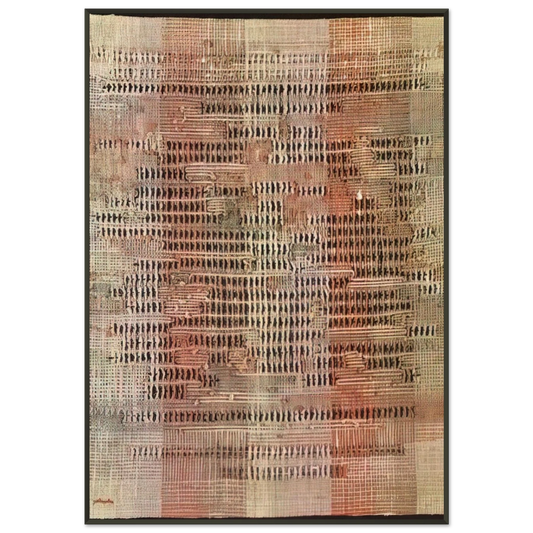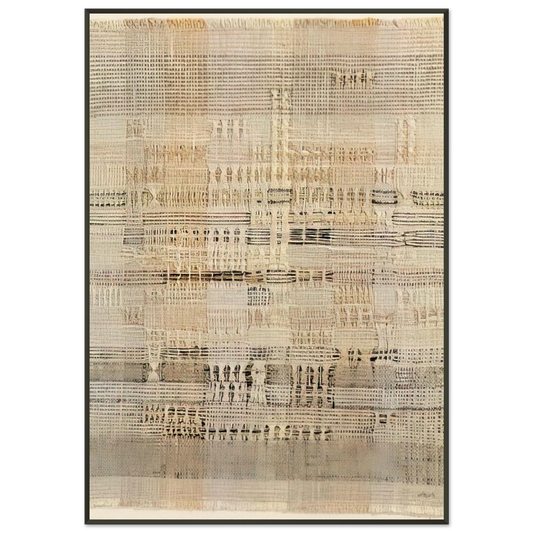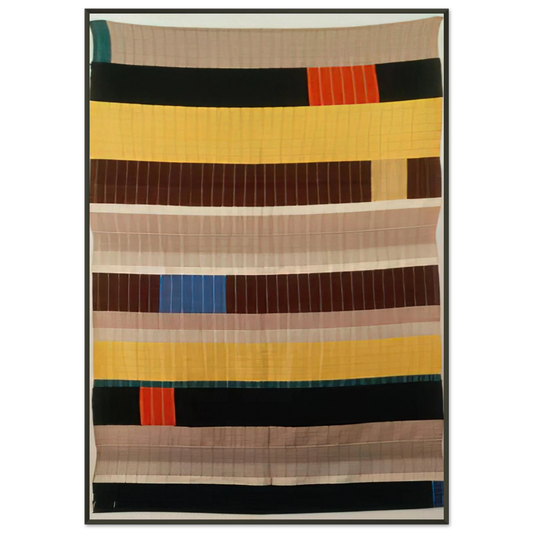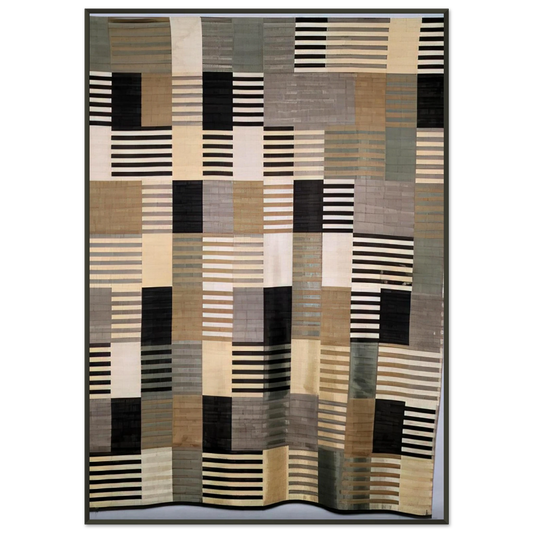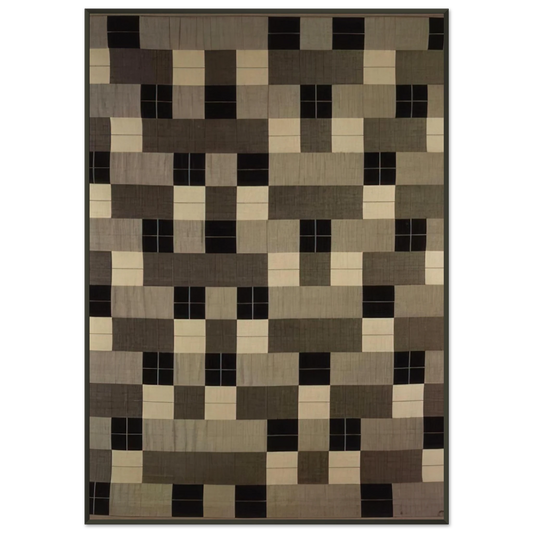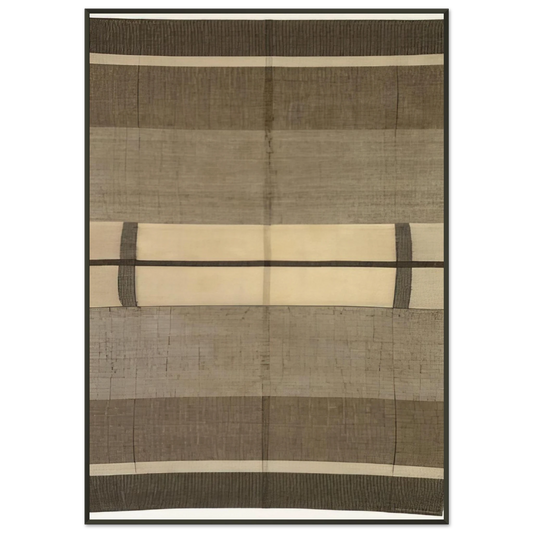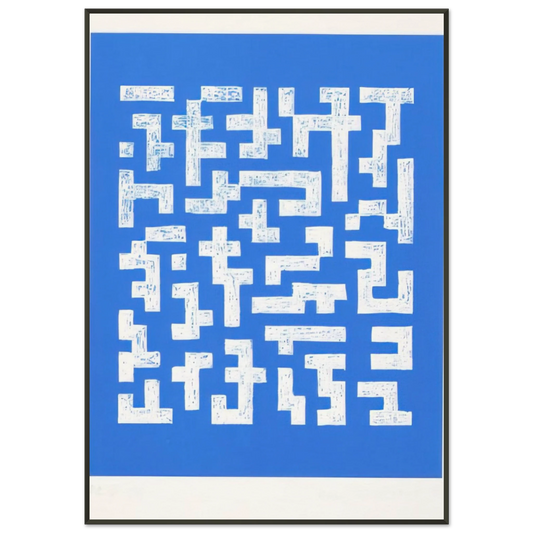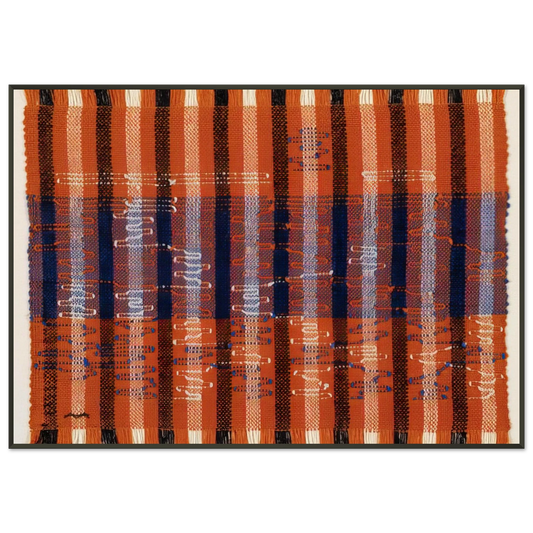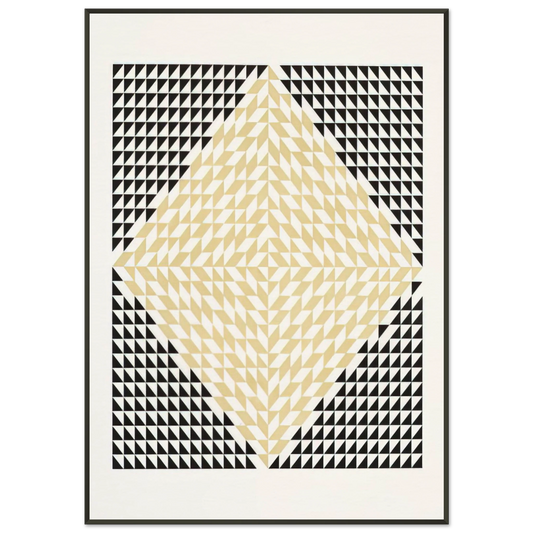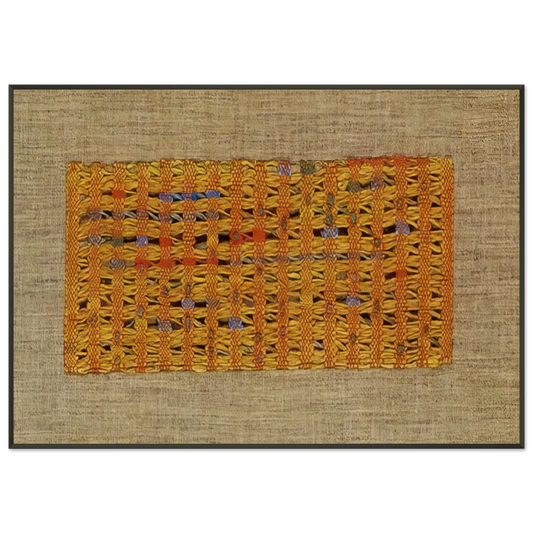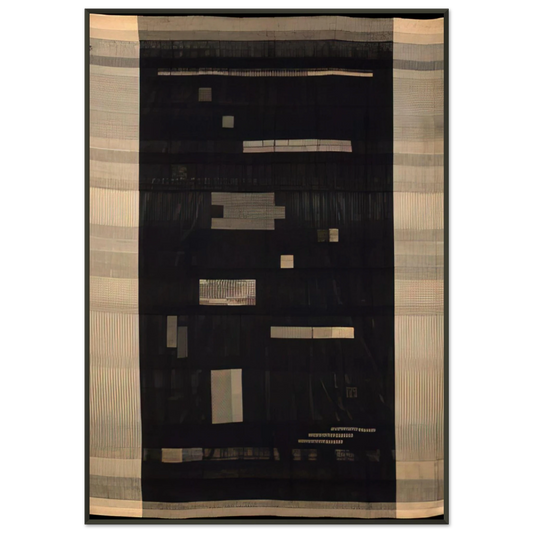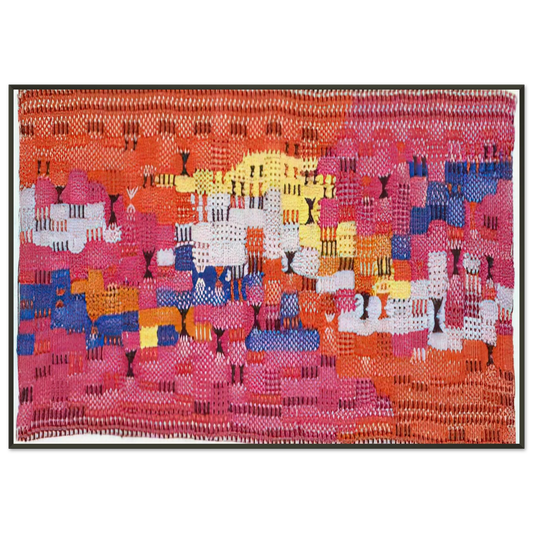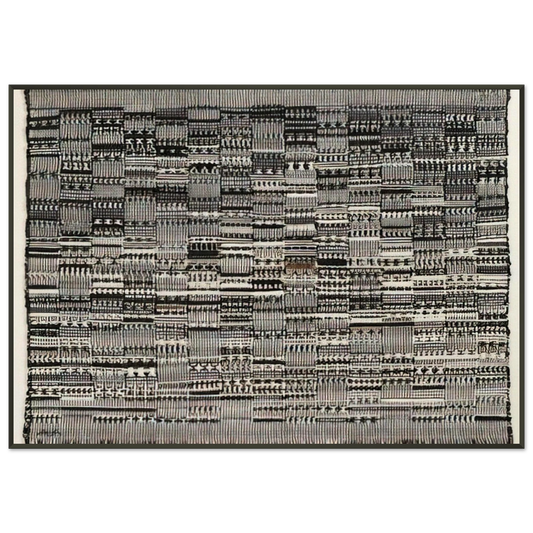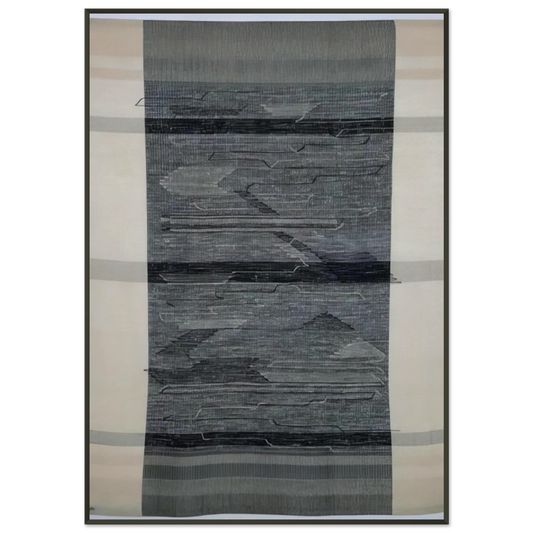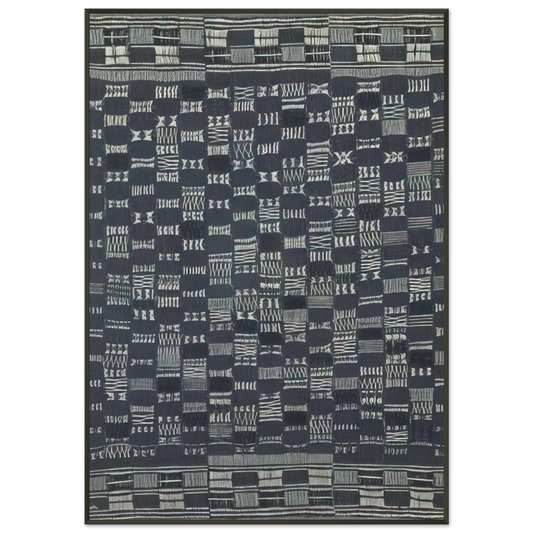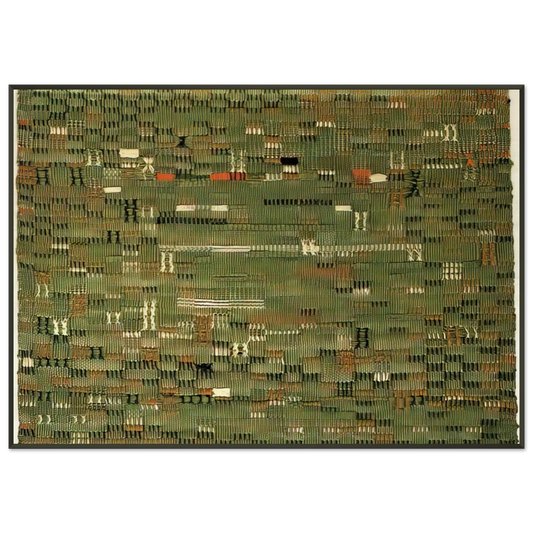Anni Albers, born Annelise Else Frieda Fleischmann, stands as one of the most profoundly influential and visionary artists of the 20th century. While often recognized primarily for her revolutionary work in textile art and design, her expansive oeuvre also encompasses significant contributions to printmaking and a broader understanding of art that defied traditional categorizations. Her legacy is a testament to the power of material exploration, structural innovation, and an unwavering commitment to abstract expression. For art collectors, designers, and enthusiasts seeking to enrich their spaces with depth and intellectual rigor, an Anni Albers framed art print offers a window into a truly groundbreaking artistic mind. Discover the timeless elegance and sophisticated geometry that define her iconic works, now available as high-quality aluminum frame art prints.
Born in Berlin in 1899, Anni Albers embarked on her artistic journey with a keen interest in painting, initially studying at the Kunstgewerbeschule in Hamburg and later briefly with impressionist artist Martin Brandenburg. However, it was her pivotal enrollment at the Bauhaus in Weimar in 1922 that would fundamentally shape her artistic direction. Facing the institutionalized gender bias of the time, women at the Bauhaus were often steered away from disciplines like painting and architecture, primarily relegated to the weaving workshop. What could have been a limitation became, for Albers, a fertile ground for unparalleled innovation. She embraced the loom not as a mere craft tool, but as a sophisticated medium for artistic expression, transforming the perception of textiles from functional objects to legitimate works of art. This radical approach cemented her status as a pioneer, challenging the rigid hierarchies between fine art and craft.
Under the guidance of masters like Paul Klee and Wassily Kandinsky, Albers absorbed the Bauhaus principles of merging art, craft, and technology. She applied their lessons on color theory, composition, and abstract principles directly to her weaving. Rather than merely producing decorative fabrics, she experimented with industrial materials, synthetic fibers, and unusual yarns, creating textiles that were not only visually stunning but also highly functional. Her groundbreaking acoustically absorbent, light-reflective, and sound-proof fabrics pushed the boundaries of material science and design. Her explorations led to a profound understanding of warp and weft, of structure as the very essence of design, which she later articulated in her seminal book, "On Weaving." Her innovative approach established weaving as a sophisticated form of abstract composition, a precursor to many forms of contemporary design and visual art. Those who buy Anni Albers art prints are investing in a piece of this revolutionary history, a connection to the avant-garde spirit of the Bauhaus.
The closure of the Bauhaus by the Nazis in 1933 forced Anni and her husband, Josef Albers, to flee to the United States. They found a new home at Black Mountain College in North Carolina, an experimental institution that fostered interdisciplinary collaboration and artistic freedom. Here, Anni Albers continued her textile explorations, developing new courses and influencing a generation of artists and designers. Her time at Black Mountain further solidified her reputation as a formidable educator and a central figure in the development of American modern art. It was during this period that her work began to gain international recognition through exhibitions and commissions, establishing her as a leading female artist whose vision transcended national boundaries.
While her work at the loom was profoundly impactful, Anni Albers' artistic journey took a significant turn in the late 1950s and 1960s as she increasingly dedicated herself to printmaking. After leaving Black Mountain College, she moved to Connecticut and found a new means of expressing her enduring fascination with line, structure, and pattern through lithography, screenprinting, and etching. For Albers, printmaking offered a fresh challenge and a new "thread" to follow, allowing her to explore her abstract ideas on a two-dimensional surface without the physical demands of weaving large textiles. Her prints, much like her textiles, reveal a meticulous attention to detail, a sophisticated understanding of geometric abstraction, and a rhythmic play of lines and shapes.
Her printmaking period produced some of her most recognizable and sought-after works. These graphic compositions often echo the grids and structural integrity of her woven pieces, yet they possess a unique character defined by the properties of ink and paper. Through a series of lines, dots, and interlocking forms, she created a visual language that is both precise and poetic, intellectual and aesthetically pleasing. These works showcase her mastery of composition and her ability to evoke movement and depth through purely abstract means. Many of these incredible pieces are now available as Anni Albers prints for sale, allowing enthusiasts to shop Anni Albers artwork that embodies her later creative explorations. A quality Anni Albers framed art print brings the crisp lines and intricate patterns of her printmaking into your home or office.
Anni Albers' influence extends far beyond her individual creations. Her theoretical writings, particularly "On Weaving" (1965), remain indispensable texts for students and practitioners of design and textile art. She advocated for an understanding of material as the starting point for design, emphasizing that the properties of the medium should dictate the form and function of the final product. Her philosophy championed the integration of art into daily life, believing that well-designed objects could enrich human experience. She shattered the misconception of craft as secondary to fine art, proving that thoughtful, innovative textile work could achieve the same intellectual depth and artistic merit as painting or sculpture.
Her work is celebrated in major museums and galleries worldwide, including the Museum of Modern Art in New York, the Tate Modern in London, and the Guggenheim. Her exhibitions continue to draw significant attention, reminding audiences of her enduring relevance in contemporary art and design. Albers' commitment to abstraction, her profound understanding of materials, and her pioneering spirit make her an eternal source of inspiration. She demonstrated that limitations can be catalysts for innovation, and that true artistic vision transcends any single medium. For anyone looking to collect Anni Albers art, choosing a meticulously crafted modern art print is an excellent way to honor her legacy.
For those who admire her groundbreaking approach and wish to bring a piece of modern art history into their environment, we offer a curated selection of Anni Albers framed art prints. Each print is produced with exceptional clarity and color fidelity, ensuring that the intricate details and subtle nuances of her original works are faithfully represented. Our commitment to quality means that every Anni Albers artwork is presented as a stunning framed art print – aluminum frame, providing both robust protection and a sleek, contemporary aesthetic that perfectly complements her modernist sensibilities.
Whether you are seeking to enrich your living room, elevate your office space, or gift a piece of iconic design, an Anni Albers print is a choice that speaks volumes. These Bauhaus art prints are more than just decorative items; they are conversations starters, reflections of an extraordinary mind, and timeless symbols of innovation. Explore our collection today and discover the perfect Anni Albers framed art print that resonates with your personal style and appreciation for art that truly matters. Shop for Anni Albers framed art and invest in a piece of enduring beauty and intellectual depth that will inspire for years to come.

